When it comes to norovirus vs food poisoning, it can be difficult to tell the difference. Norovirus is a highly contagious virus that affects millions of people every year, while food poisoning is caused by eating contaminated food and is usually far less severe than norovirus. It is important to be aware of the symptoms and treatments for both so that you can take the necessary steps to protect yourself and your family. In this blog post, we will explore the differences between norovirus and food poisoning so that you know which one you should be worried about.
Table of Contents
What is Norovirus?
Norovirus is a highly contagious virus that causes gastrointestinal illness, sometimes referred to as “stomach flu” or “food poisoning.” The virus is spread through contact with an infected person, consuming contaminated food or water, or touching contaminated surfaces. Common norovirus symptoms include nausea, vomiting, diarrhea, stomach cramping, and sometimes fever, headache, and body aches.
Its diagnosis can be made through laboratory testing of stool specimens or vomitus. Treatment for norovirus involves drinking plenty of fluids and getting enough rest, as well as over-the-counter medications to help relieve the symptoms. There is no vaccine available to prevent norovirus infection. The best way to avoid becoming ill is to practice good hygiene by washing hands often, especially after using the restroom or before preparing food.
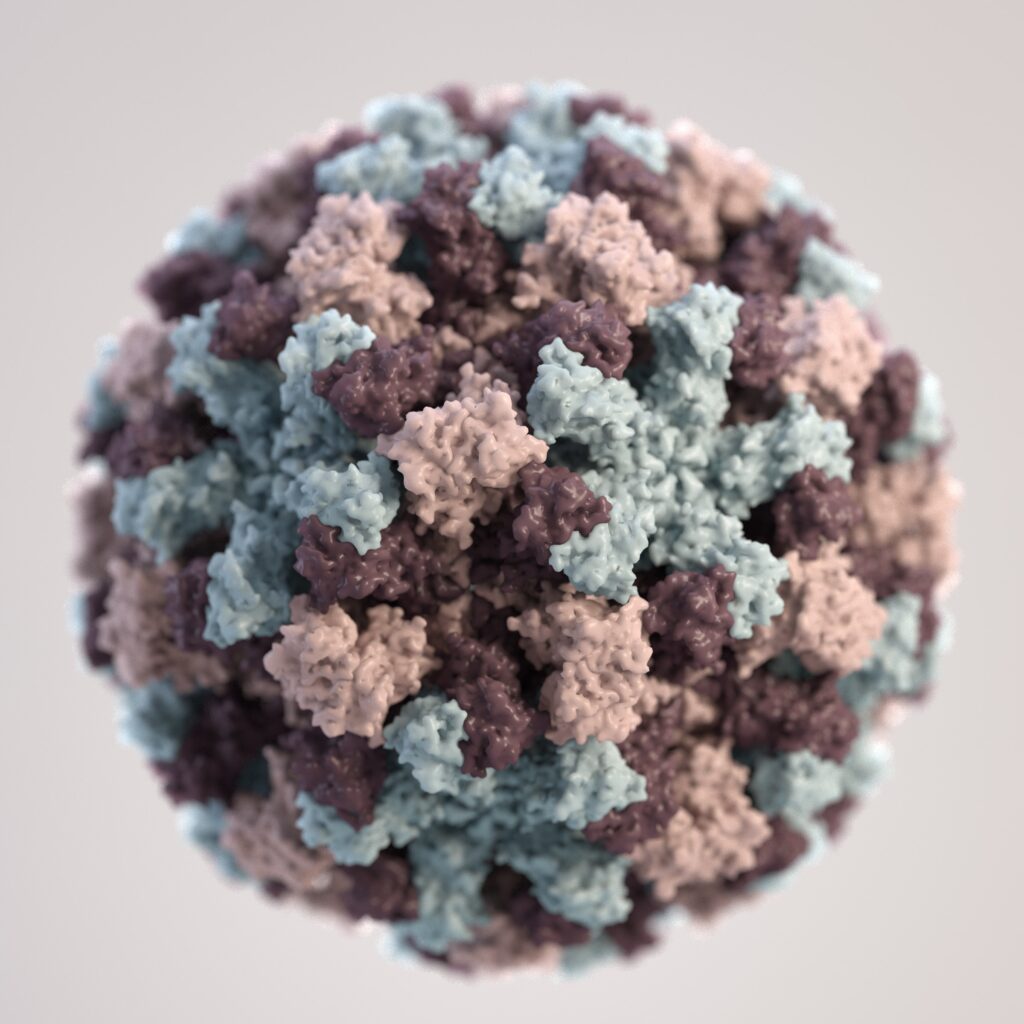
What are Symptoms of Norovirus?
Norovirus is an extremely contagious virus that causes inflammation in the stomach and intestines, resulting in symptoms such as diarrhea, nausea, vomiting, stomach cramps, and fever. Other symptoms can include headache, chills, and body aches. Symptoms typically start one to two days after being exposed to the virus and can last for one to three days. Most people who are infected with norovirus will recover without any medical intervention or norovirus treatment. In more severe cases, however, a doctor may need to be consulted for proper norovirus diagnosis and treatment.
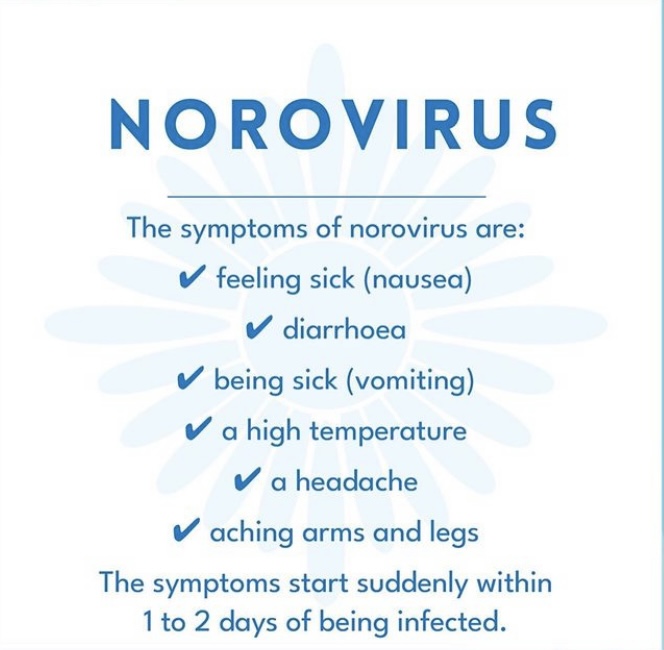
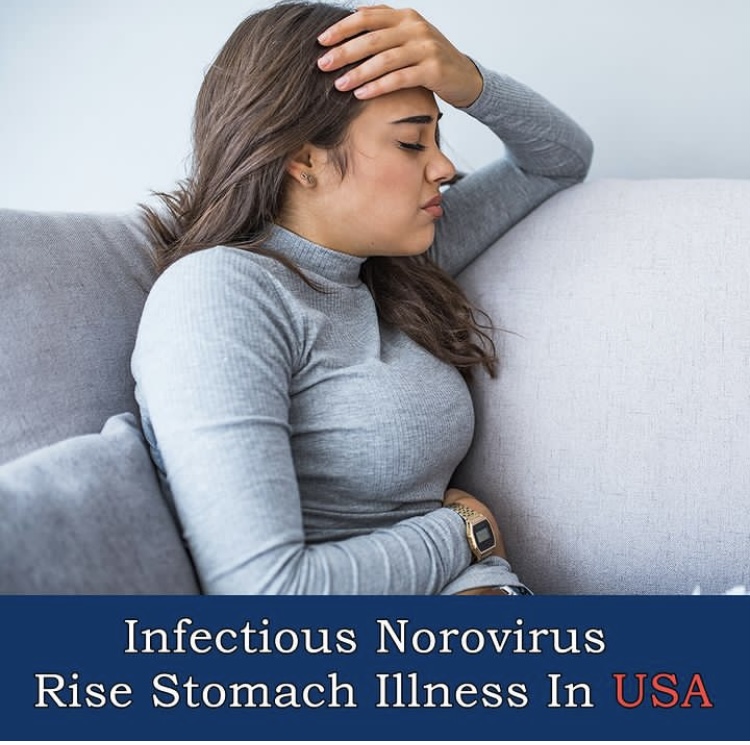
How is Norovirus Diagnosed?
The diagnosis is based on the patient’s symptoms and medical history. A doctor may ask about possible contact with infected people, recently consumed foods, and recent travel. Additionally, a stool sample may be taken and tested for the presence of norovirus.
In some cases, the doctor may order a test to check for antibodies to the virus, which may help confirm the diagnosis. However, this test is not widely available and can take several days to receive the results.
Norovirus symptoms can include nausea, vomiting, diarrhea, abdominal pain, and low-grade fever. The diagnosis is generally made after evaluating these signs and symptoms in combination with a person’s medical history and possible exposure to an infected individual or contaminated food or water. Treatment is typically focused on managing the symptoms until the infection clears.
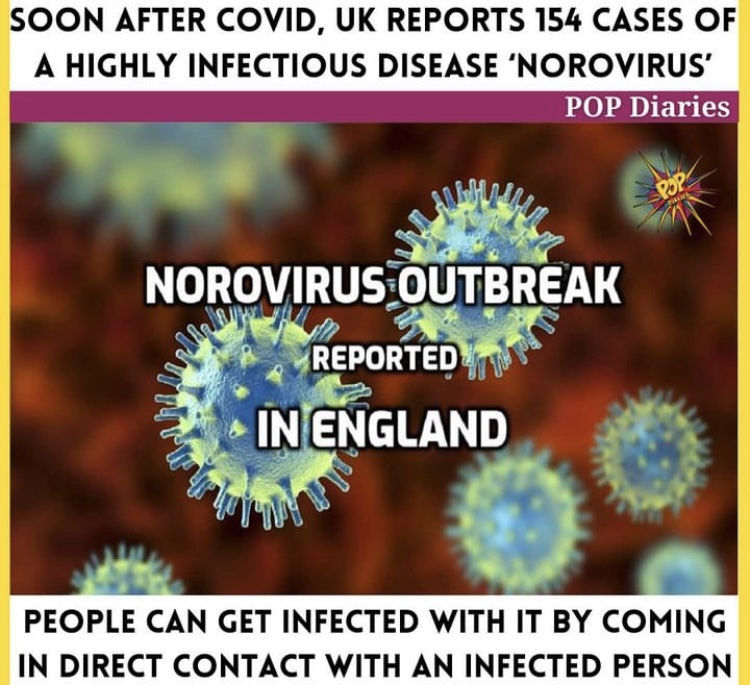
What is Treatment for Norovirus?
Unfortunately, there is no specific treatment for norovirus. Most people who get norovirus will recover on their own within 1-3 days. To help ease the symptoms , it is important to stay hydrated by drinking plenty of fluids such as water, electrolyte beverages, and clear broth. Over-the-counter medications like acetaminophen and ibuprofen can also be taken to reduce any fever or aches and pains.
For severe cases, the diagnosis may require hospitalization for rehydration and supportive care. In this case, a doctor may prescribe intravenous fluids and medications for nausea, vomiting, and pain. Antibiotics are generally not used to treat norovirus as they are ineffective against viruses. It is important to note that recovery from norovirus is usually faster in healthy individuals. People with weakened immune systems may take longer to recover.
How can Norovirus be Prevented?
Norovirus is highly contagious and can be easily spread from person to person. It is therefore important to take precautions to reduce your risk of contracting the virus. The best way to prevent norovirus is by practicing good hygiene. This includes washing your hands frequently with soap and water, especially after using the restroom, changing diapers, and before handling or eating food. Avoiding close contact with those who are ill and avoiding sharing items such as cups or eating utensils can also help reduce the risk of transmission. Additionally, it is important to make sure food is cooked and stored properly and to ensure that any seafood or shellfish has been harvested safely.
In addition to these preventive measures, it may be beneficial to receive the norovirus vaccine. There are currently two vaccines available: Norovax and Vaccibody-Noro. Both are available for adults over the age of 18 and provide protection against certain strains of norovirus. Talk to your doctor about whether a norovirus vaccine is right for you.
Is there a Vaccine for Norovirus?
Unfortunately, there is currently no vaccine available for norovirus. Although there have been numerous research and development projects in progress for many years, none have been successful thus far in creating a vaccine to prevent the infection. For now, the best way to protect yourself from norovirus is to practice good hygiene habits, wash your hands often, and take steps to avoid coming into contact with contaminated food or water. However, researchers are hopeful that a norovirus vaccine will be developed in the future. Until then, the most effective norovirus treatment is prevention.
What is Food Poisoning?
Food poisoning is an illness caused by eating contaminated food or drinks. It can occur due to the ingestion of a virus, bacteria, or parasites. Symptoms of food poisoning usually begin within 1-2 hours of consumption but may take up to 72 hours or longer. They may include nausea, vomiting, diarrhea, abdominal cramps, and fever. Depending on the type of food poisoning, symptoms may last for days or weeks and can range from mild to severe. In some cases, food poisoning can cause long-term health complications or even death.
When it comes to norovirus treatment for food poisoning, it is important to note that norovirus does not respond to antibiotics. While some people may be prescribed antiemetic medications to help with nausea and vomiting, the best treatment for norovirus is hydration and supportive care. This includes drinking plenty of fluids to replace lost electrolytes and consuming small, easy-to-digest meals. Most people recover in 1-3 days without needing medical attention.
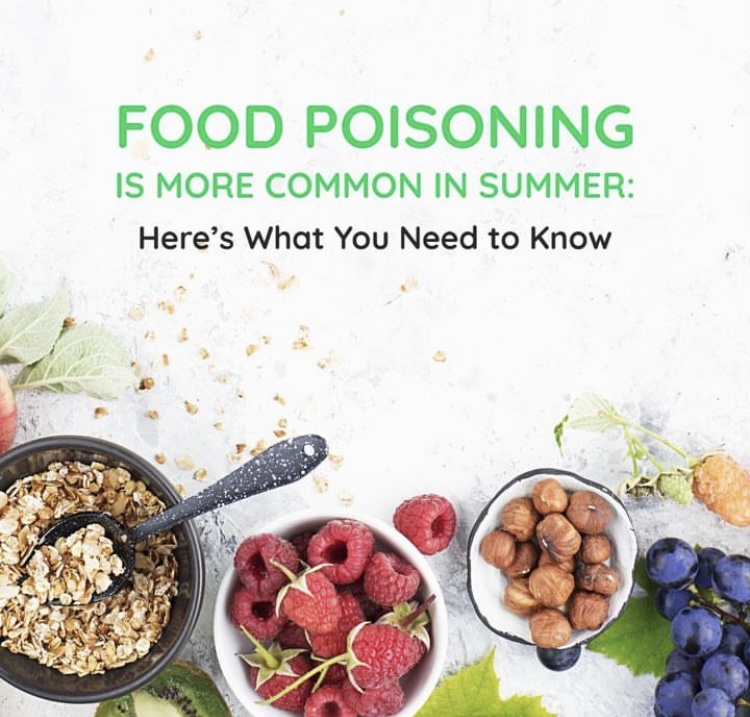

What are Symptoms of Food Poisoning?
Food poisoning is caused by the consumption of food or drinks that have been contaminated with bacteria, viruses, parasites, or toxins. The symptoms can vary depending on the type of food poisoning but may include nausea, vomiting, diarrhea, abdominal cramps, and fever. Other common symptoms include headache, chills, sweating, loss of appetite, and weakness. Some people may also experience muscle aches, dehydration, and fatigue. In more severe cases, food poisoning can cause bloody diarrhea and can even be fatal.
It’s important to note that the symptoms of food poisoning can appear anywhere from a few hours to a few days after consuming contaminated food. Therefore, it’s important to pay attention to any sudden changes in your body after eating. If you experience any of the above symptoms, seek medical help immediately.

How is Food Poisoning Diagnosed?
Diagnosing food poisoning typically involves the doctor asking you questions about your symptoms, medical history, and the foods that you ate. Your doctor may also recommend laboratory tests such as a stool sample or blood test to identify the type of bacteria or virus causing your food poisoning. In some cases, your doctor may recommend imaging tests such as an x-ray or CT scan. It is important to note that not all food poisoning can be diagnosed with a lab test; in those cases, diagnosis is based on your symptoms and exposure to contaminated food.
It is also important to seek medical help if you have been experiencing food poisoning for more than two days, as this could indicate a more serious illness. If you think that the food poisoning was caused by something other than eating contaminated food, such as exposure to a toxic chemical or substance, you should seek medical help right away.
What is treatment of Food Poisoning?
When it comes to treating food poisoning, the main goal is to treat the symptoms and ensure your body can properly process the contaminants. Depending on the severity of the contamination, treatment options may range from simple home remedies such as drinking plenty of fluids and resting, to hospitalization and intravenous fluids.
In general, a doctor may suggest rest, plenty of fluids, electrolyte drinks and/or OTC medications such as ibuprofen or acetaminophen to reduce fever or pain. Anti-nausea medications may also be recommended. Your doctor may also recommend that you avoid certain foods for some time until your gastrointestinal system has healed.
In some cases, antibiotics may be prescribed if the cause of the contamination is bacterial. This is usually reserved for severe cases, as antibiotics will not help with viral infections. Your doctor may also recommend specific probiotics to help replenish good bacteria in the gut.
If you have severe symptoms or think you may have been poisoned, it’s important to seek medical attention as soon as possible. Early diagnosis and treatment can help reduce the severity of your symptoms and prevent long-term complications.
How can Food Poisoning be prevented?
Food poisoning can be prevented by following some simple food safety practices. The main areas to focus on include proper food storage, careful food handling, and proper cooking and reheating of food.
When it comes to food storage, always make sure to store food items in separate containers and at the correct temperatures. Perishable foods such as meat and dairy should be kept in the refrigerator and never left out at room temperature for more than two hours. Leftovers should also be stored properly in airtight containers and consumed within three to four days.
When it comes to food handling, always make sure to wash your hands thoroughly with soap and water before and after handling food. Additionally, raw meat and poultry should be separated from other foods to avoid cross-contamination. Cutting boards and utensils used for raw meats should also be cleaned and sanitized to prevent contamination.
Proper cooking and reheating of food are also essential in preventing food poisoning. All foods should be cooked to a safe internal temperature to ensure that all bacteria have been killed. When reheating leftovers, make sure they are heated thoroughly and not just warmed up.
By following these simple steps, you can greatly reduce your risk of food poisoning. However, if you experience any symptoms of food poisoning, be sure to seek medical attention right away.
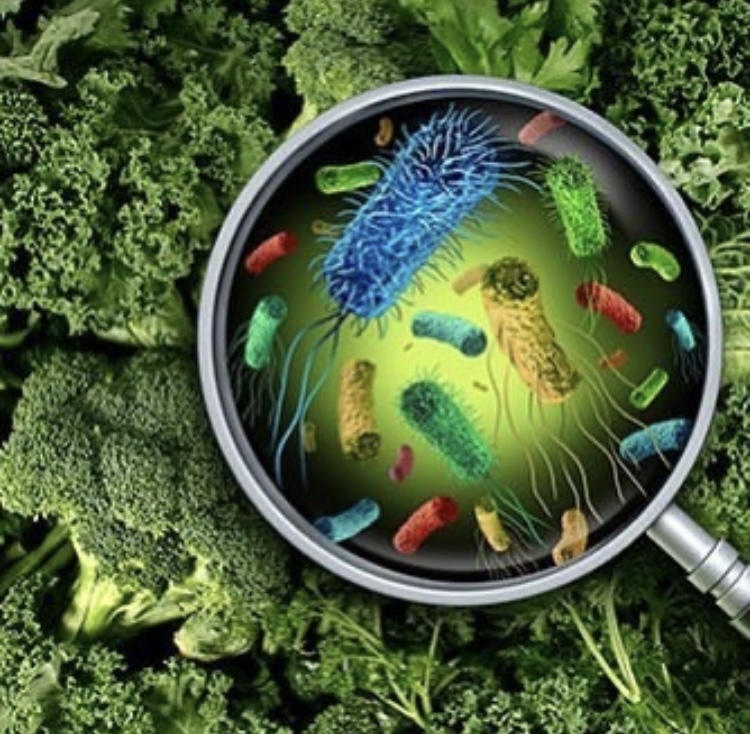
So, Which One Should You Be Worried About? Norovirus vs Food Poisoning
Deciding between norovirus and food poisoning can be tricky, as the symptoms can overlap and be difficult to distinguish. That said, there are some differences between the two illnesses that can help you decide which one to be concerned about.
Norovirus is a highly contagious virus that is responsible for many cases of acute gastroenteritis each year. It can cause severe nausea, vomiting, and diarrhea, and can last from one to three days. While it can be very unpleasant, it is generally not life-threatening and does not require medical treatment. The best way to prevent norovirus infection is to practice good hand hygiene and avoid contact with sick people.
Food poisoning is an illness caused by consuming food or drink contaminated with harmful bacteria, toxins, or viruses. Symptoms of food poisoning can include nausea, vomiting, diarrhea, fever, abdominal pain, and dehydration. In severe cases, food poisoning can lead to serious complications such as organ damage or even death. Treatment of food poisoning typically involves supportive care and antibiotics when needed. To prevent food poisoning, it’s important to practice proper food handling techniques, cook foods properly, and refrigerate leftovers promptly.
Ultimately, it is important to pay close attention to your symptoms and seek medical advice if they become severe or don’t go away after a few days. Taking these steps can help you determine whether you have norovirus or food poisoning so that you can get the right treatment as quickly as possible.
Frequently Asked Questions (FAQs) about Nipah Virus:
1. What is Nipah virus, and how is it transmitted? Nipah virus (NiV) is a zoonotic virus that can be transmitted from animals to humans, primarily through the consumption of contaminated food or direct contact with infected animals, such as bats or pigs. Human-to-human transmission can also occur through close contact with respiratory secretions or bodily fluids of infected individuals.
2. What are the symptoms of Nipah virus infection, and how severe is it? The symptoms of Nipah virus infection can range from mild flu-like symptoms, such as fever, headache, and muscle pain, to more severe manifestations, including encephalitis (brain inflammation) and respiratory distress. In severe cases, Nipah virus infection can lead to coma or death, with a high mortality rate of up to 75%.
3. Where is Nipah virus commonly found, and what are the risk factors for contracting the virus? Nipah virus is endemic to South and Southeast Asia, particularly in areas where fruit bats, the natural reservoir of the virus, are prevalent. Risk factors for contracting the virus include living or working in close proximity to fruit bats or infected animals, consuming raw date palm sap or fruits contaminated with bat saliva or urine, and participating in activities that involve exposure to infected animals.
4. Is there a treatment or vaccine available for Nipah virus infection? Currently, there is no specific antiviral treatment or vaccine approved for Nipah virus infection. Supportive care, such as intravenous fluids and respiratory support, is the mainstay of treatment for symptomatic individuals. Experimental treatments and vaccines are under development but have not yet been widely implemented.
5. How can Nipah virus outbreaks be prevented, and what measures can individuals take to protect themselves? Preventive measures to reduce the risk of Nipah virus outbreaks include avoiding direct contact with bats or sick animals, practicing good hand hygiene, thoroughly cooking fruits and vegetables before consumption, and avoiding consumption of raw date palm sap. In outbreak settings, public health interventions such as surveillance, quarantine, and isolation of infected individuals are crucial for containing the spread of the virus.
6. Are there any specific precautions travelers should take when visiting regions where Nipah virus is endemic? Travelers to regions where Nipah virus is endemic should be aware of the risk factors for contracting the virus and take appropriate precautions to minimize exposure. This includes avoiding contact with animals, particularly bats and pigs, refraining from consuming unpasteurized date palm sap or fruits, and practicing good personal hygiene, such as frequent handwashing with soap and water.
7. Can Nipah virus be transmitted through air travel or imported fruits? While there have been no documented cases of Nipah virus transmission through air travel or imported fruits, travelers should remain vigilant and adhere to general preventive measures, such as avoiding contact with potentially contaminated surfaces or objects and practicing good respiratory hygiene, especially in crowded or enclosed spaces.
8. What is the role of public health authorities and international organizations in responding to Nipah virus outbreaks? Public health authorities and international organizations play a critical role in surveillance, early detection, and response to Nipah virus outbreaks. This includes coordinating efforts to investigate and contain outbreaks, providing medical care and support to affected individuals, and conducting research to better understand the virus and develop effective prevention and control strategies.
Bottom Line
Norovirus and food poisoning both have similar symptoms, so it can be difficult to tell the difference. Norovirus is highly contagious and can be contracted by coming in contact with an infected person or object. Food poisoning, on the other hand, is caused by eating contaminated food or drinking contaminated water. While there are treatments for both norovirus and food poisoning, prevention is key. To protect yourself and your family from these illnesses, practice good hand hygiene, follow safe food-handling practices, and avoid contact with someone who is sick. If you suspect you have either one, seek medical attention as soon as possible.

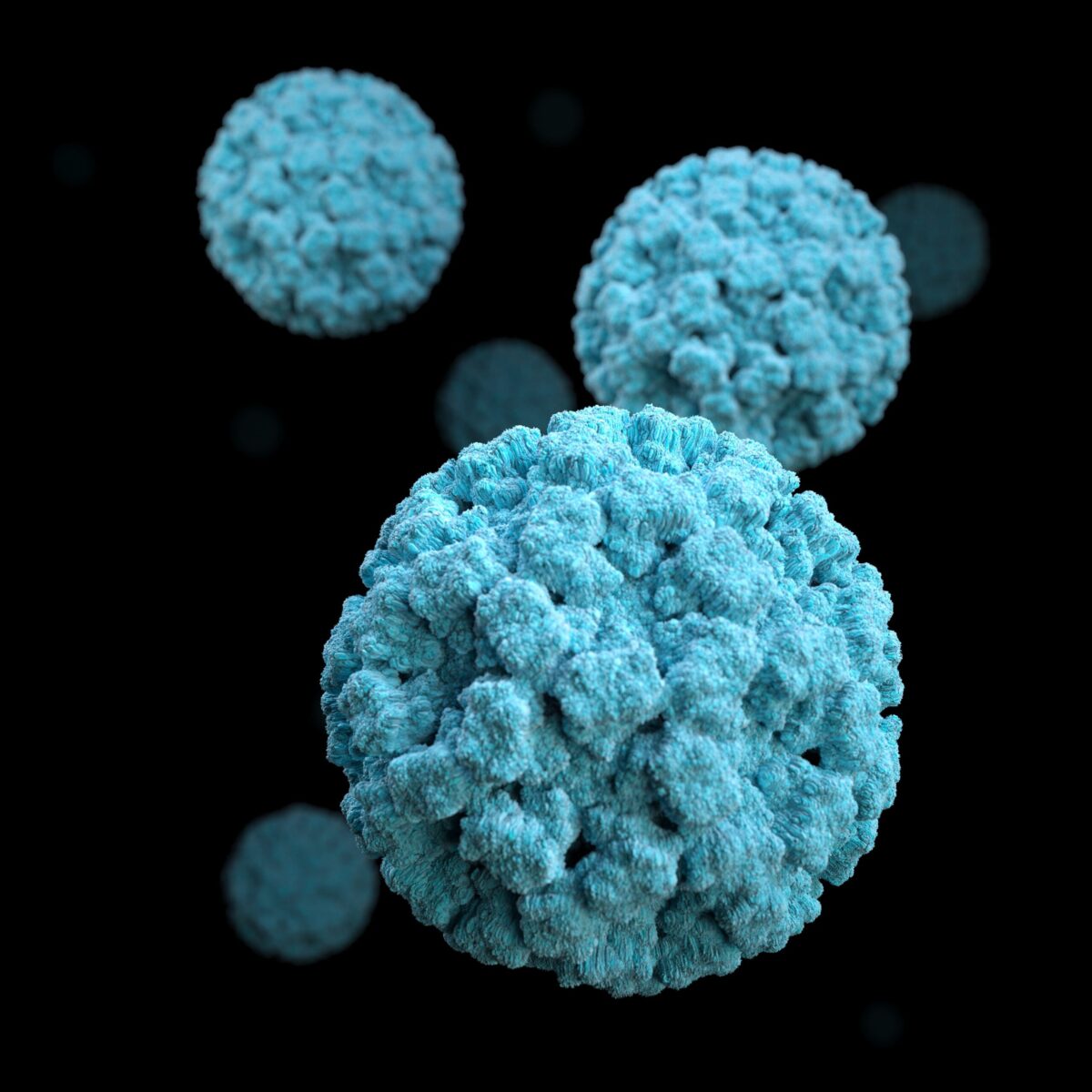
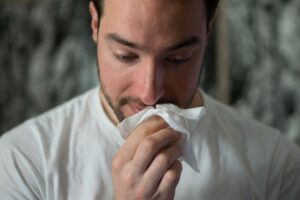

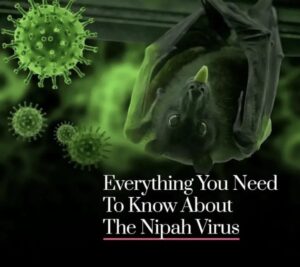
Pingback: Spotting Spoiled Foods: 5 Signs that Food that Makes People Sick Will Often be Rotten - HEALTHILY EVER AFTER